- Home
- Helen Dunmore
Mourning Ruby
Mourning Ruby Read online
Mourning Ruby
By the Same Author
Zennor in Darkness
Burning Bright
A Spell of Winter
Talking to the Dead
Love of Fat Men
Your Blue-Eyed Boy
With Your Crooked Heart
Ice Cream
The Siege
Mourning Ruby
HELEN DUNMORE
VIKING
an imprint of
PENGUIN BOOK
VIKING
Published by the Penguin Group
Penguin Books Ltd, 80 Strand, London WC2R 0RL, England
Penguin Putnam Inc., 375 Hudson Street, New York, New York 10014, USA
Penguin Books Australia Ltd, 250 Camberwell Road, Camberwell, Victoria 3124, Australia
Penguin Books Canada Ltd, 10 Alcorn Avenue, Toronto, Ontario, Canada M4V 3B2
Penguin Books India (P) Ltd, 11 Community Centre,
Panchsheel Park, New Delhi – 110 017, India
Penguin Books (NZ) Ltd, Cnr Rosedale and Airborne Roads,
Albany, Auckland, New Zealand
Penguin Books (South Africa) (Pty) Ltd, 24 Sturdee Avenue,
Rosebank 2196, South Africa
Penguin Books Ltd, Registered Offices: 80 Strand, London WC2R 0RL, England
www.penguin.com
First published 2003
1
Copyright © Helen Dunmore, 2003
The moral right of the author has been asserted
All rights reserved
Without limiting the rights under copyright
reserved above, no part of this publication may be
reproduced, stored in or introduced into a retrieval system,
or transmitted, in any form or by any means (electronic, mechanical,
photocopying, recording or otherwise), without the prior
written permission of both the copyright owner and
the above publisher of this book
A CIP catalogue record for this book is available from the British Library
EISBN: 978–0–141–90156–5
Prologue
A car comes up, with lamps full-glare,
That flash upon a tree:
It has nothing to do with me
And whangs along in a world of its own,
Leaving a blacker air.
We’re on the coast road to Zennor from St Just. The sun set half an hour ago and the western sky is hung with rags of light. Dark is gaining fast.
Ruby and I are walking northward. We keep to the road, with Ruby’s hand in mine. Not a single car has passed us.
If we were in a house now, looking from a window, we would see only black. But when you are out in the living dark it takes a hundred shapes and shades.
We are safe. Soon night will fold around us as we walk on, but even before the moon rises there’ll be enough starlight to see the pale stripe of the road. And Ruby’s a good walker.
On our left, below the cliffs, the vast Atlantic breathes.
A basking shark came in close around the Island last summer. Dolphins played off Gwithian and people went out to visit them in boats.
The seals will be feeding their pups now, on the ledges they’ve chosen. The mother seal’s fat melts from her as she pours calories into her pup. The equation is that by the time she needs to roam free and feed, the pup will survive without her. It doesn’t always work, that goes without saying.
Ruby knows if she sees a seal pup alone in one of the coves, she mustn’t go near, still less touch. The spoor of her humanity would drive the mother seal away for ever.
It hasn’t been abandoned, Ruby. The mother’s probably watching you now.
It’s dark. We hear the distant pull of the sea, the cry of the last gulls heading out of land. Ruby asks me how far it is and instead of telling her I sing a song she knows.
How many miles to Babylon?
Four score miles and ten.
Will we get there by candlelight?
Yes, and back again.
If your heels are nimble and light
We may get there by candlelight.
‘Are my heels nimble and light?’ Ruby asks. We walk on. I hold her warm, soft hand more tightly. We can keep up this pace for hours if we have to. It’s easier walking by day than by night. If she gets too tired I’ll hoist her on my back.
‘Do whales go to sleep?’
‘Everything has to sleep.’
‘Does the sea sleep?’
‘I don’t think so.’
Are witches real and why do animals eat other animals? Why is it that we fear our own kind more than any other creature we might meet on these lonely roads at night? It’s not the vixen’s cough or the cliff’s drop that makes me prickle. It’s those headlights, far-off, sweeping the granite hedges.
Those headlights, too fast. They come full on and the black safe night ruptures round us.
I sweep Ruby onto the verge. I push her into the wetness of long grass. She yelps protest but I smother it with my body which shields her so that if anything’s hit it’ll be me and never Ruby.
We are held in white oncoming light. I don’t even hear the car engine. Too close, spitting up stones, the car sweeps past.
It’s gone. I wind Ruby out of the folds of my coat. On our left, below the cliffs, the vast Atlantic breathes. Ruby and I walk on.
I would sleep for ever if it would give me dreams like this.
PART ONE
Shoebox Story
1
Foundling
She was a good-looking girl, too; where did she come from?
She dodged into the yard with me in her arms, tucked up in a shoebox. Or, to be exact, a box that once held a pair of men’s size eleven mid-tan calf-leather shoes.
The cardboard’s worn now, but there’s still a picture of the shoes on the side. They look very manly. I expect this is why I’ve always loved the smell of leather.
‘Goodbye, baby,’ she said, as she put me down by the warm, gusty ventilator at the back of Vittorio’s. I reckon she would have reckoned someone would be out soon. Kitchen staff are always taking a break in the backyard. You see them out there, sucking on a fag as if they’re doing mouth-to-mouth on themselves.
She didn’t think of rats. I’ve thought of them, and I’ve shivered for myself in that shoebox, all alone and crying for someone.
I didn’t cry. That’s clear from Lucia’s story. That story, along with the shoebox, is my inheritance. And as inheritances go, it has turned out more substantial than you’d think.
‘Goodbye, baby,’ my mother whispered. Or maybe she called me by the name she’d given me. But I don’t know what that was. I don’t know who I was in those hours before my story began, the hours when I was my mother’s child. She didn’t pin a note onto my clothes, for me to read when I was grown up.
I’m glad of it. She understood that she had no rights in the future of a baby she was about to give away. She wanted me to start with a clean sheet.
She backed out of the yard, tripping over something that made a clang and scared the rats off for those vital first minutes. It must have frightened my mother too. She hurried away down the street, in her too-tight black skirt, with her pink sweater stretched over big, pearly breasts.
How do I know that? I can’t believe that I ever tasted those breasts. Could she have let me taste her, and then left me?
The kitchen door opened in a gush of steam, and Lucia hurled an onion into the darkness of the yard. It hit the side of my box and I began to scream. It was the Madonna who told Lucia to throw that onion, and if she hadn’t done so there is no doubt that I would have been eaten by a rat before the night was out. So Lucia told me. She was slicing onions from a net sack when she came upon the third b
ad one. It was firm to the touch, but when she sliced it she saw the grey fust in its seams. Usually she’d have slung it into the bin under the counter, but this time la Madonna had picked Lucia for action.
Holding the fusty onion, Lucia kicked open the kitchen door. She was packed with the aggressive pleasure that builds up, night after night, from working well at a job that is below your capacity. Cursing the supplier who had tried to make an imbecile of her, she hurled the onion into the night with all her strength. But it wasn’t just Lucia’s own strength that threw the onion. La Madonna took Lucia’s arm, flexed her muscles, and filled them with the power of a shot-putter.
In Lucia’s second version, given after we had drunk another cup of coffee together, the onion was perfectly healthy. What happened was that Lucia had the door open as usual, and she heard the clang of metal as my mother tripped on leaving the yard. She hurled the onion at the cat she thought my mother was. But even so, it was a virgin’s strength that powered her arm.
I think that these were my mother’s calculations when she decided to abandon me by a ventilation shaft in the backyard of an Italian restaurant:
– that I would be warm,
– that there would be food nearby,
– that Italians love babies.
Lucia did not love babies. She knew far too much about them for that. She had loved her own three babies, born to her in her early twenties and already grown at the time of my birth. All of them had given and were still giving her pain. Giancarlo, little Vittorio, and Stefania. These were Lucia’s babies, now hidden in adult flesh. She would never be unfaithful to them with anyone else’s child, but at the sight of a shoebox full of baby Lucia became practical.
She scooped me out of the box and I dangled like a baby cat. She held me up in her two hands, her strong fingers supporting the back of my neck, and assessed me for what I was and what I might become.
‘Femmina,’ she pronounced to herself, taking in the bright pink ribbons on my nightdress. Cheap rubbish, la poverina. My purple feet were bare.
Once inside with me, she placed my shoebox on a shelf and phoned for the police. Not for a second did it occur to Lucia to keep me. She made no fuss, she didn’t cry out, and service continued as usual in the restaurant. Big Vittorio knew nothing about it until a chunky policewoman bustled through the restaurant, closely followed by a policeman who looked embarrassed, as if someone might accuse him of being the baby’s father. He was only young.
‘How old is it?’ he asked, as Lucia demonstrated the real, live baby.
‘Two days, three days,’ she shrugged. ‘The cord is still there.’ And she whipped up my nightdress to show the cord stump, which had not yet shrivelled and fallen off. Neither had it been carefully attended with powder and wipes, as ordered in maternity hospitals. My cord stump was bare and raw. The policeman looked away.
‘So it’s a boy,’ he said stupidly.
‘Is a baby girl, naturalmente,’ said Lucia to the policewoman. And so I was.
Lucia held on to this part of my story and gave it to me when I came looking for it. By then I no longer kept the shoebox with me. It was somewhere in the house I’d left along with my marriage. Compared to other things that had happened, the shoebox seemed of minor importance now. I needed the story, not the object.
The restaurant no longer existed, and Big Vittorio was dead. Little Vittorio, now over fifty, was an insurance broker. I visited Lucia in her garden flat. We sat all one hot afternoon in the tiny garden which Lucia had packed with explosions of flower, and she told me what she knew. Sometimes she reached out to touch my bare brown knee.
She was an old woman with knots of vein in her legs. I looked at the hands which had taken me out of my box. I listened to the voice that had pronounced me female, more surely than any midwife.
Lucia, you didn’t pretend to have forgotten my story when I came to find you. You told me as much as you knew. I think you wondered why I hadn’t come to find you earlier, but you said nothing about that. The truth is that it was only possible for me to come and find you when I was no longer in search of my mother at all.
Naturally I have often wondered about the shoebox. Did my mother go into a shop and ask them if they had a large one, this big, big enough to put a baby in? If the shoe-shop assistant was exceptionally helpful, she may even have clambered up a ladder to the very top of her stack of boxes, to find the treasure my mother required.
My mother, down on solid earth, holding her hands apart, this far. Big, shapely hands. She stares up, and her face is wan in the gloom of the shoe-shop stockroom.
‘No, bigger than that. Try the next size.’
Alternatively, the shoebox may have held shoes bought by my father. This gives me more to work on. If he wore size eleven shoes, then he was a tall man – or else he was stocky, with exceptional feet and hands. (He might have grown tall, had he not been ill-fed in his childhood. In fact, he might have become an athlete…)
These shoes, these precious shoes of calf leather. My father had been saving for weeks. He snuffed the smell of new leather and loved it, just as I do. He wore the shoes, but never threw away the box. It was too big and useful, and besides it had the price of the shoes on its side, proud evidence of what he had spent.
It’s hard to throw away a box like that. It might come in handy. But my mother did take the price off. I can see where the price label was, and I like her for the delicacy that made her refuse to place her baby inside a box marked £10 10s. Od. Or ten guineas, as they would have said in the expensive shop where my father bought the shoes.
(But she neglected to take out the price slip inside the box. It must have lain there safe beneath my head.)
Ten pounds ten shillings was a lot of money for a pair of men’s shoes in 1965. I’ve done my research on this, and it suggests three possibilities.
My father was rich.
My father lived above his means.
My father preferred shoes to babies.
There are no such things as guineas any more, but I’m glad they existed when I was born. A girl for ten guineas has a ring to it.
Lucia might simply have handed over the baby, and kept the box. But she gave it to the policeman, while the policewoman took charge of my damp, furious self, and so my history was preserved. These days they might be able to take my mother’s DNA off the cardboard, from the marks made by her sweating fingers. Maybe there was saliva on the box from the kiss she gave me as she set me down. But it’s too late for all that. And besides, my mother committed no crime.
How far off was my mother by the time the policewoman took charge of me? She escaped. She hurried away, turning corner after corner. She would have been bleeding still, after my birth.
Inquiries were made. A man walking his dog (or so he said) remembered seeing a woman hurry away from Vittorio’s backyard. She was almost running, and she was not wearing a coat on that late-September evening. He saw her clearly in the light of a street lamp. So what did she look like, this woman?
The man made a quick shape with his hands to show my mother’s curves. Out, in, out. Yet this was a woman who had only two or three days earlier given birth to the femmina in the shoebox. How could she be so shapely?
She could. We’re like that in my family, to go by what evidence I have: that one sighting of my mother, and the sight of myself in the mirror when Ruby was two days old. We are women who snap back into shape after giving birth. I possess that glimpse of my mother in late-September lamplight: out, in, out. Breasts straining her pink jersey. A too-tight black skirt. I compare it to my own figure in the hospital mirror. While the other women in the post-natal corridors pulled helplessly at handfuls of leak and flobber, I snapped back into shape. My strong, curved peasant body was born to be back at work within the day.
A tight dark skirt and a sweater that stretched over her breasts. That’s what the man glimpsed when he was walking his dog.
Yeah, tight. You know. You could see everything. Out, in, out.
&nb
sp; Lucia’s eyes were half shut, as she told me her part of the story. Behind her, ranks of geraniums, lobelia and nasturtiums rioted. Lucia had done her duty. She had preserved me from a yard full of rats and shadows. She had handed me over to authority, raw, screeching, but unharmed.
2
Baby Aeroplanes
the wife wants a child
the wife wants a child
ee ay ee ay
the wife wants a child
I mistrust sensitive people. In my experience what they are chiefly sensitive to is themselves. My adoptive mother had nerves as rare as orchids, and I was on them most of my life.
In her bedroom’s smelly darkness she lay flat with an airline eye-mask over her eyes. In the back lane I ranged with my cap-gun, ambushing witches. Out of the side of my mouth I told myself the count. Ten shot to death that day already. When metal touches a witch they just melt into nothing, and my cap-gun was bronze. I held the barrel close to my nose to breathe in that wild gun smoke.
It was not so hard to adopt a baby in the mid-sixties. Twenty years later I’d have been a rarity, even a treasure, but I was common enough then. A healthy newborn female infant in search of a home. My adoptive parents never struck me as frivolous people, but there was something frivolous in their decision to adopt. They can’t ever have let loose the whole energy of their thought on the question. Did they really want a child? Did they like children, or know what they were like?
A baby. My adoptive mother must have hypnotized herself with those two words. A little baby. Once, when I was eight, I dug out from the bottom of the sideboard a bag full of baby clothes: cobweb cardigans, silky romper suits, a white dress with coral embroidery. Folded, new, untouched.
‘Oh well,’ said my adoptive mother, a touch of embarrassment in her manner as she took the bag back and folded it shut again. ‘There was no point putting you in these. You were sick all the time.’
A baby. A little baby. They had planned to adopt a little boy next, once I had settled, my adoptive mother often told me reproachfully. But I was such a difficult baby that it put them off. I wouldn’t sleep. When she tried to give me my Cow & Gate I twisted aside from the teat and screamed, and milk would spurt over both of us. She would ram the bottle back in because she was afraid I would starve, and I would choke on the milk.

 The Ingo Chronicles: Stormswept
The Ingo Chronicles: Stormswept The Deep
The Deep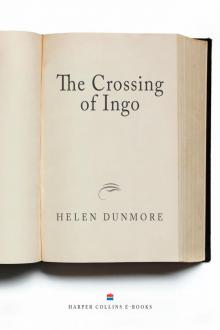 The Crossing of Ingo
The Crossing of Ingo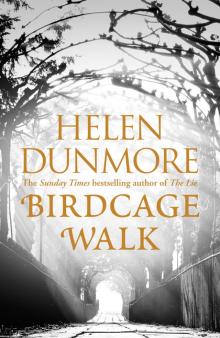 Birdcage Walk
Birdcage Walk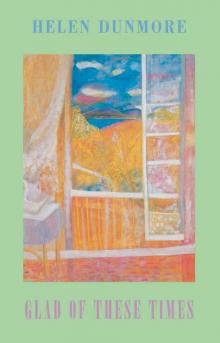 Glad of These Times
Glad of These Times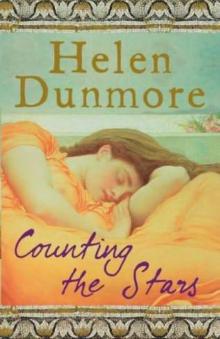 Counting the Stars
Counting the Stars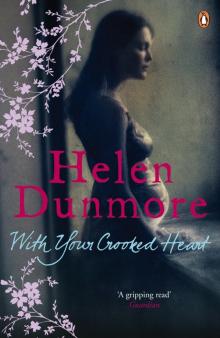 With Your Crooked Heart
With Your Crooked Heart Burning Bright
Burning Bright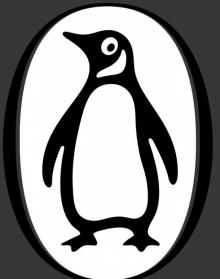 House of Orphans
House of Orphans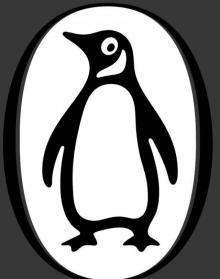 Mourning Ruby
Mourning Ruby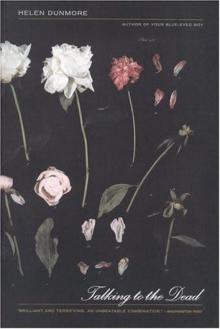 Talking to the Dead
Talking to the Dead Exposure
Exposure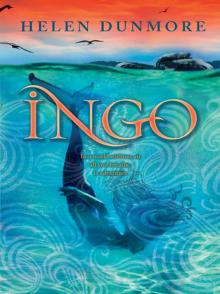 Ingo
Ingo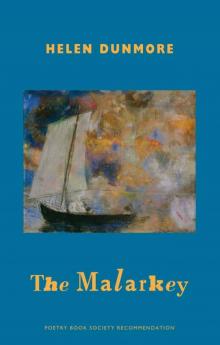 The Malarkey
The Malarkey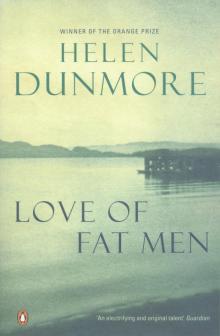 Love of Fat Men
Love of Fat Men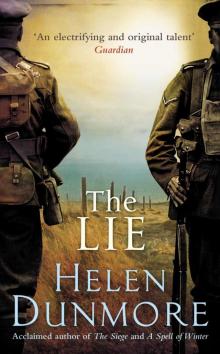 The Lie
The Lie The Siege
The Siege Inside the Wave
Inside the Wave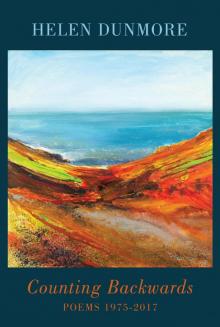 Counting Backwards
Counting Backwards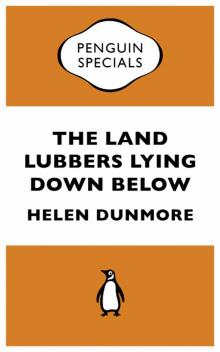 The Land Lubbers Lying Down Below (Penguin Specials)
The Land Lubbers Lying Down Below (Penguin Specials)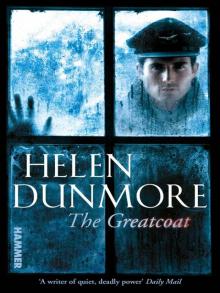 The Greatcoat
The Greatcoat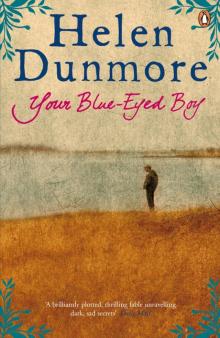 Your Blue Eyed Boy
Your Blue Eyed Boy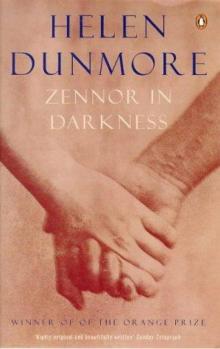 Zennor in Darkness
Zennor in Darkness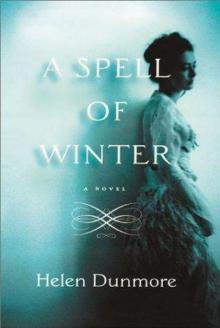 Spell of Winter
Spell of Winter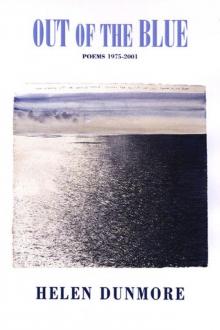 Out of the Blue: Poems 1975-2001
Out of the Blue: Poems 1975-2001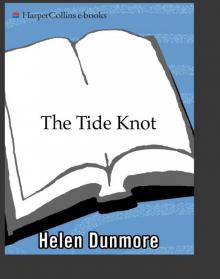 Tide Knot
Tide Knot The Betrayal
The Betrayal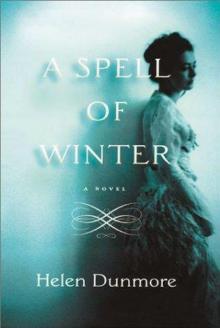 A Spell of Winter
A Spell of Winter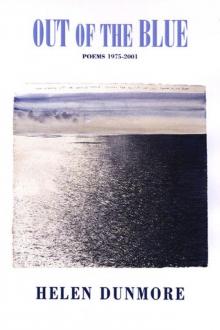 Out of the Blue
Out of the Blue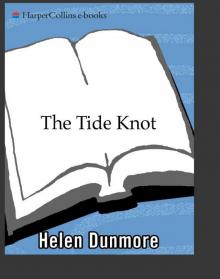 The Tide Knot
The Tide Knot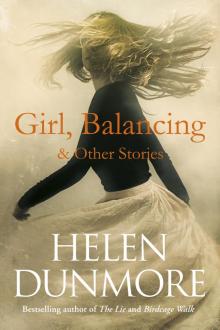 Girl, Balancing & Other Stories
Girl, Balancing & Other Stories Betrayal
Betrayal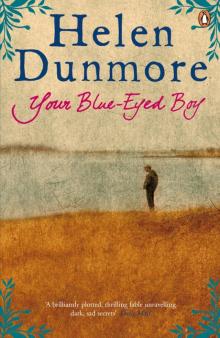 Your Blue-Eyed Boy
Your Blue-Eyed Boy